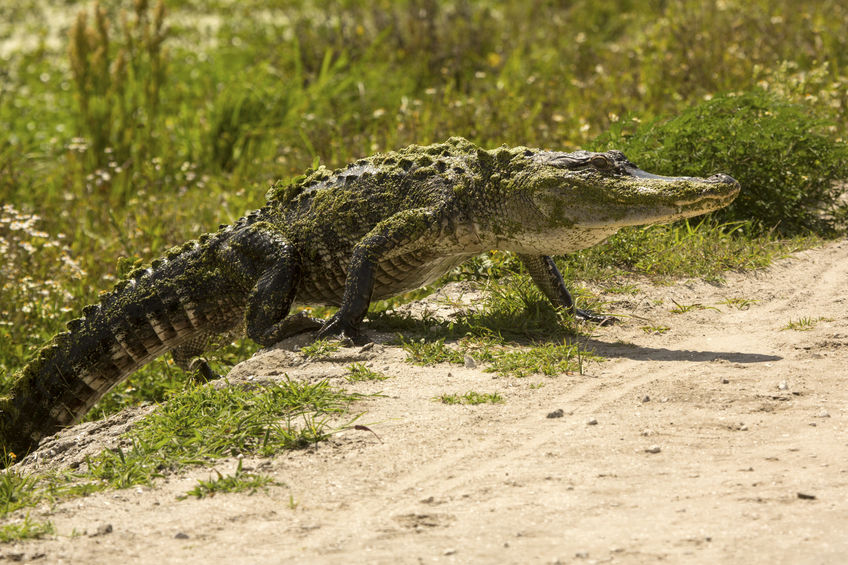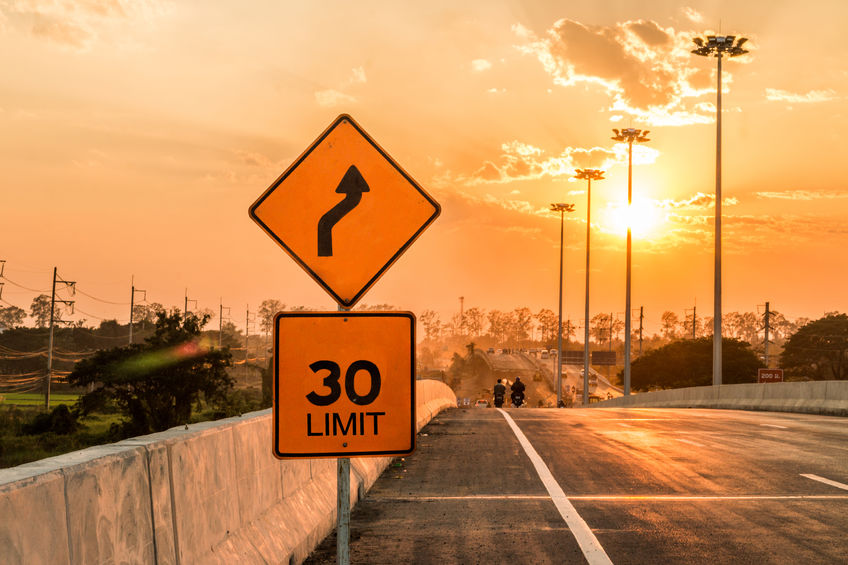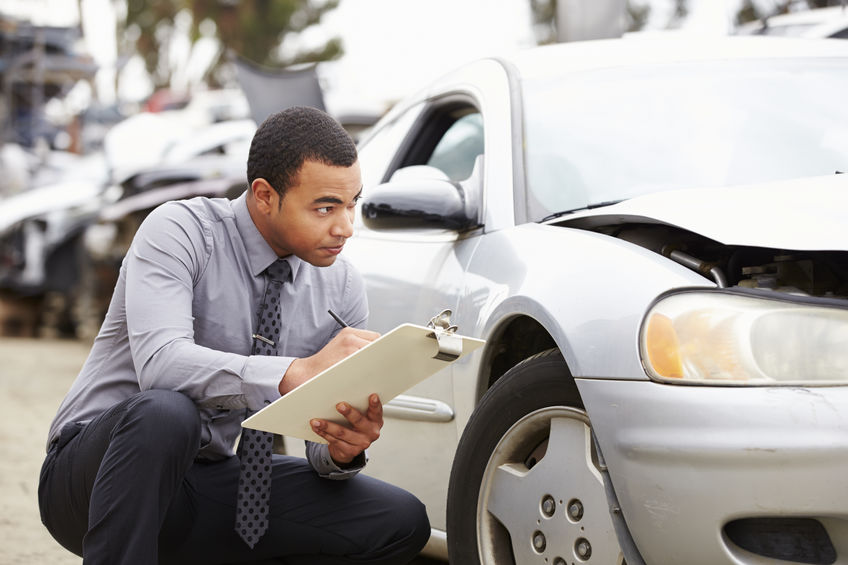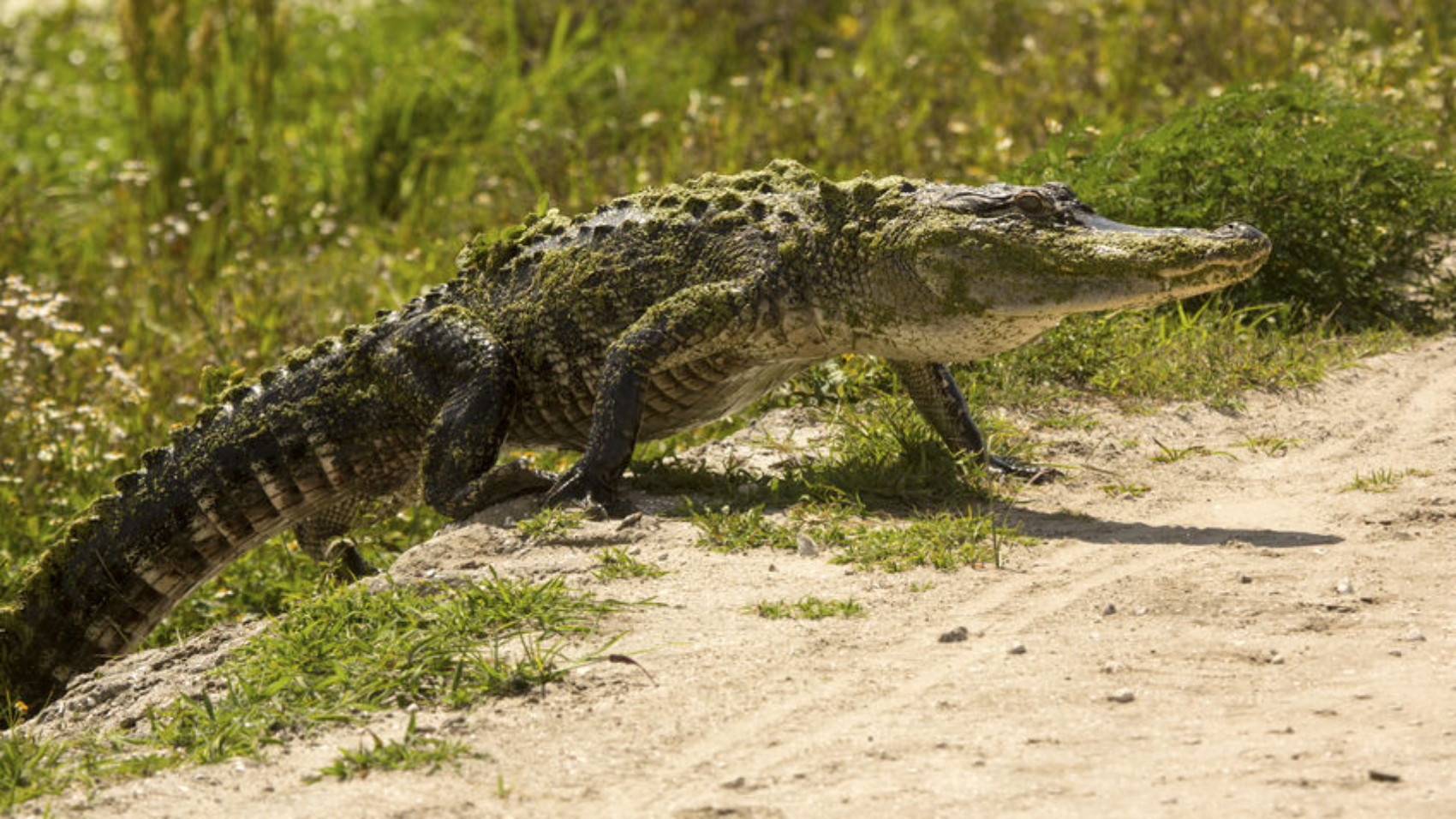
Just under a year ago, a Florida mother and her two toddlers suffered a fatal auto collision with an alligator in South Carolina. According to police, they struck the animal and skidded off the road, smashing into a tree. The vehicle burst into flames upon impact, killing all three.
Unfortunately, if you live in Florida — or anywhere along the Gulf of Mexico — this probably isn’t the first story you’ve heard about an auto accident involving one of these larger-than-life reptiles. In fact, the USDA reports about a billion dollars annually in collision damage due to alligators and other wildlife.
If you have recently experience this kind of accident, and aren’t sure what happens next, an experienced Florida auto claims attorney can help. In the meantime, we’ll share how to avoid animal-vehicle collisions, reduce impact when you can’t, and what happens afterwards if the accident was unavoidable.
Avoiding a Wildlife Accident in Florida
Three common-sense concepts are the most likely way to get you where you need to be without colliding with part of the animal kingdom:
- Drive Undistracted. We can probably all agree that you can’t avoid what you don’t see. With technology at our fingertips — some of which is specifically designed to make our driving experiences more enjoyable — accidents due to distracted driving have risen drastically over the past several years. Even if you think you’re alone on the open road – just you, your GPS app, and your playlist – know that you’re not. The primary way you can help yourself avoid a wild animal collision is to keep your eyes on the road.
- Know Your Roads. Understanding what wildlife populates your areas, during which seasons, and their basic life habits will help when navigating various landscapes on your regular routes — particularly over hills and at crossing points. Additionally, you should use auto safety features like adaptive headlights to see better. Wild animals are generally most active at dusk and dawn, so you want to be on heightened alert during those hours. Finally, living where alligators are abundant means learning to keep your eyes lower than someone watching for, say, deer.

- 3.) Keep to Posted Speeds. You may not be aware, but roadway engineers consider every aspect of the environment when developing recommendations for speeds. They look at physics and velocity around curves, distances of straight-aways before drivers become drowsy — everything. Sometimes those low speeds are in place to allow you enough time to brake for local wildlife.
When you do have to stop suddenly, quickly tap your brakes several times to signal drivers behind, lay on your horn to frighten the animal, and then simply brake – do not swerve. You may be able to stop short of an accident, and swerving often leads to greater damage than the actual impact.
Otherwise, braking in the way described will at minimum reduce animal-vehicle impact and associated damage. From there, a few key steps will ensure swift and proper processing of your auto accident claim.
After an Animal-Vehicle Collision Occurs in Florida
Your comprehensive coverage insurance plan protects your vehicle against physical damage from a car crash not caused by a stationary object or another vehicle. That includes wildlife-vehicle collisions as long as your claim meets a few standard requirements.
Generally speaking, you should take these steps:
- First make sure that you and any other people involved are okay. If there are serious injuries, reach out to emergency services immediately.
- If possible, pull over and do what it takes to make yourself and the scene visible: put on your hazards, and light a couple of flairs if you’ve got them.
- Next, call the police to report the accident. Although there is no law in Florida against leaving the scene of an animal-related accident, staying until authorities arrive to let them know whether the animal is alive (in which case they can safely put it down) is the humane thing to do.
- Last, if you’re able, take photos. Document the scene, the animal, the damage to your vehicle, and any visible injuries sustained by yourself or any passengers.

Nearly all animal car accidents are handled the same by car insurance carriers. Knowing what damage to look for and how to handle an animal damage claim can save time and money.
About the Author:
Jeffrey Braxton is a trial lawyer in Fort Lauderdale who has devoted his career to the practice of personal injury law. As lead trial attorney for the South Florida Injury Law Firm, Jeff has litigated thousands of cases and is a member of the Million Dollar Advocates Forum, an exclusive group of attorneys who have resolved cases in excess of one million dollars.




